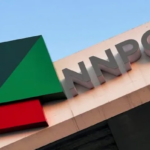Mr Hassan Usman is the Managing Director of Jaiz Bank, the pioneer non-interest bank in Nigeria with a balance sheet of N300 billion within its 10 years of operation. In this interview, Usman speaks on the challenges faced by non-interest banks, support for SMEs, among others.
How has the journey been so far for Jaiz Bank as a non-interest financial institution?
More than any other institution, we are required to extend the awareness of our product and services so that we can get as many people to benefit from what we are offering because what Nigeria requires is not only diversification of financial resources but also the variety in terms of applications. By now, the public is aware of how non-interest banking can be used to support infrastructure, which would have been otherwise difficult to do; now SUKUK has become so popular because we have taken this course ten years ago to licence Jaiz. I am happy to say that today, Jaiz as the pioneer will be 10 years in a few months and we have come a long way.
I am sure many of you have been following our story, you have seen how we have been growing from a balance sheet size of just N12 billion in December 2012 to almost N300 billion in 2021.
This is growth, especially in the last five years; from 2016 till date, we have grown at about 40% average annual growth. Our profitability has also been growing at more than 45% in the last couple of years. So overall, I think that having achieved this in the 10-year period of our existence, we are poised for the next five-ten years of growth. This is a period of rapid growth for us and we want to consolidate. We recently opened our 45th branch in the capital of Ondo State, Akure. So, we are doing everything possible to make sure that we spread the branch network to enable as many people as possible to be onboarded on the non-interest banking sub-sector of the financial industry.
What have been the major challenges faced so far?
The obvious difficulty of getting the financial infrastructure. A bank operates with an infrastructure, which includes the money market and also activities of the treasury bill to manage whatever resources are raised before utilisation for financing or lending to institutions.
As you are aware, when we started 10 years ago, there was no infrastructure for the non-interest banking sub-sector to thrive. It was in 2017, after five years of our operations, that the first infrastructure was issued, which provides an instrument that our treasury can invest in.
So obviously, doing SMEs at that stage would have been difficult because SMEs come in bits and pieces; while the wholesale will come in chunks. That was the strategy at the beginning even though our minds and souls were meant to go to SMEs. Since 2017, we have been emphasising more SMEs. Today, we have roughly 20-25% of our portfolio in SMEs.
There is also a lack of awareness about our products.
How do you support SMEs and make profit as a non-interest bank?
SMEs is a strong focus for Jaiz because we believe that this is the area, we can make strong contributions towards empowerment and increase financial inclusion. In the beginning, because of the obvious difficulties of getting the financial infrastructure, we were doing more of wholesale banking before we settled down to the environment and also for the regulators to ensure that we have what we can use to manage liquidity.
The next phase of Nigeria is for people to become employers. We have an ever-growing young population coming with opportunities and the next phase of development for Nigeria is not about people looking for employment, but people becoming employers of labour to grow the economy. That’s why we are focusing on SMEs to empower people in order to remain a peaceful nation for the growth and development of the economy.
How were you able to record 40% growth year on year?
Well, first of all, Nigeria is a big market. There is ample space for new products and services. Secondly, we have had a very committed workforce. There are conventional bankers who left their institutions because they believe in the new product and the sustainability; and they helped the institution to be able to weather the storm of the first five years until we got some infrastructure to manage it in a more professional manner in terms of liquidity management, which is a challenge for non-interest banks worldwide. At the beginning, we face these challenges of infrastructure so we have to work harder in order to be able to survive. We survived the first five years and we became one of the fastest institutions of our type to break even. After two years, we broke even and since then, we have been profitable, increasingly, especially for the last five years.
How is the bank deploying technology to its advantage?
Obviously, this is taken for granted. There is no bank that can thrive emphasising on physical branches only but because we are new, we need to have a presence at least in the state capitals. You will need to have minimum branch networks in state capitals and in some specific commercial centres. While fintech may not need to have a branch because of the size of their transactions. We need to see our customers, meet with them. Besides financing, we need to engage with them and understand what the vision and mission is because we are committing more significant resources than fintech will do. There is also still a generation of customers that do not believe that they can do all their transactions without seeing their managers. So, we have to create that opportunity for them.
For you to meet the aspirations of customers today and tomorrow, you must invest heavily in technology and we are doing that. We have virtually all the channels that any conventional bank has, we have internet banking, mobile banking, USSD, POS and ATMs. What we are doing now is to see how we can strengthen these channels, expand the capability to have more partnership and strategic relationships with fintech institutions that can support the next phase of our growth and trajectory
How do you intend to remain competitive in the coming years?
We know that this is a space that will see growth and because we have been fairly successful, we are going to see more. Today, we have about 2-3 non-interest banks, more will come. Our approach is that we will compete and collaborate. Again, the space is big to have collaboration and widen the scope of the market. We need to have more numbers. We have more than 30 conventional banks that are operating successfully.

 Join Daily Trust WhatsApp Community For Quick Access To News and Happenings Around You.
Join Daily Trust WhatsApp Community For Quick Access To News and Happenings Around You.


